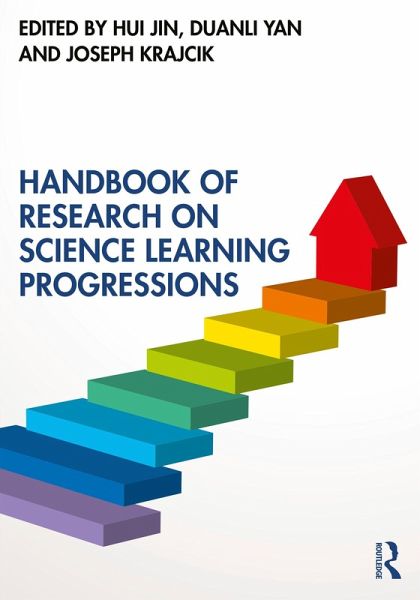
Handbook of Research on Science Learning Progressions (eBook, ePUB)
Versandkostenfrei!
Sofort per Download lieferbar
114,95 €
inkl. MwSt.
Weitere Ausgaben:

PAYBACK Punkte
57 °P sammeln!
Gathering contributions from leading scholars around the world, this handbook offers a comprehensive resource on the most recent advances in research surrounding the theories, methodologies, and applications of science learning progressions.Researchers and educators have used learning progressions to guide the design and alignment of curriculum, instruction, and assessment, and to help students learn scientific knowledge and practices in a coherent and connected way across multiple years. This handbook lays out the development and current state of research in this field across four sections: l...
Gathering contributions from leading scholars around the world, this handbook offers a comprehensive resource on the most recent advances in research surrounding the theories, methodologies, and applications of science learning progressions.
Researchers and educators have used learning progressions to guide the design and alignment of curriculum, instruction, and assessment, and to help students learn scientific knowledge and practices in a coherent and connected way across multiple years. This handbook lays out the development and current state of research in this field across four sections: learning progression theories and methodologies; learning progressions to promote student learning; teachers' learning and use of learning progressions; and new technology in learning progression research.
Featuring internationally-recognized experts in learning progression research as well as up-and-coming voices, the Handbook of Research on Science Learning Progressions offers a defining new resource for researchers, teachers and teacher educators, and curriculum and assessment developers in science education.
Researchers and educators have used learning progressions to guide the design and alignment of curriculum, instruction, and assessment, and to help students learn scientific knowledge and practices in a coherent and connected way across multiple years. This handbook lays out the development and current state of research in this field across four sections: learning progression theories and methodologies; learning progressions to promote student learning; teachers' learning and use of learning progressions; and new technology in learning progression research.
Featuring internationally-recognized experts in learning progression research as well as up-and-coming voices, the Handbook of Research on Science Learning Progressions offers a defining new resource for researchers, teachers and teacher educators, and curriculum and assessment developers in science education.
Dieser Download kann aus rechtlichen Gründen nur mit Rechnungsadresse in A, B, BG, CY, CZ, D, DK, EW, E, FIN, F, GR, HR, H, IRL, I, LT, L, LR, M, NL, PL, P, R, S, SLO, SK ausgeliefert werden.



